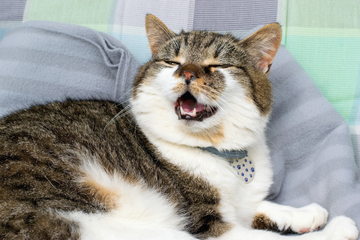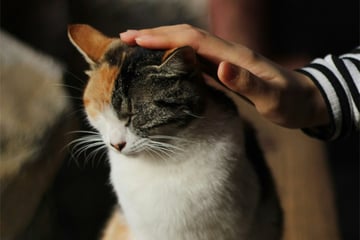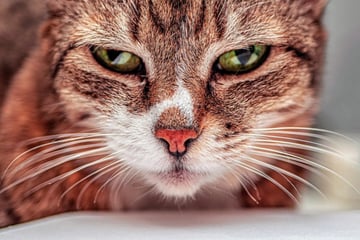Why does my cat have dandruff?
Where cats get dandruff, unpleasant messes closely follow. It's important to understand why your cat has dandruff, what symptoms to look out for, and how you can treat your kitty.
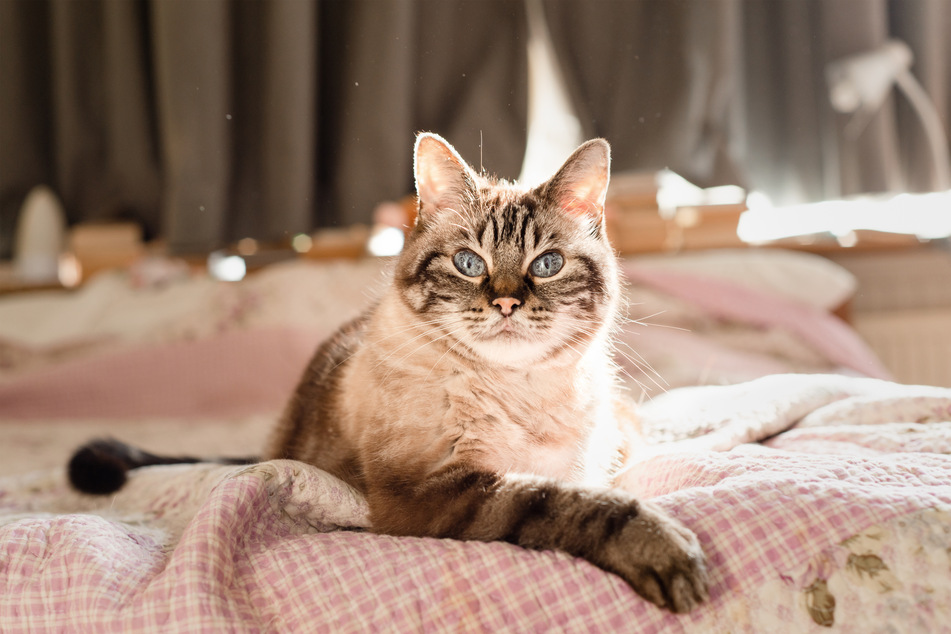
Little flakes of white skin, when scattered among the fur of your beloved feline, can be both messy and disgusting. It certainly doesn't make you want to dive in for a cuddle!
So, what is cat dandruff, and what does it look like on cats? What causes this bizarre and uncomfortable phenomenon, and what treatment methods can you use to make your cat's dandruff better?
What is cat dandruff?
Cat dandruff is more or less the same as human dandruff, a condition that causes the skin beneath a cat's hair to get flaky and fall off. Also commonly referred to as "feline dandruff," it causes small white flakes of skin to form clots in the fur, shifting around like sand, falling onto the ground, and floating in the air when your cat shakes or scratches itself.
While cat dandruff is rarely dangerous, it is something to pay attention to because it can cause great discomfort and future skin issues in your cat, and because it can be indicative of more serious issues with your feline friend's health. If you have been petting your kitty and noticed that it has dandruff, it is worth investigating.
Important: Please remember that we are not veterinarians nor medical professionals of any kind. This article is a basic explainer. We would recommend you contact your vet if you are concerned about your cat's health in any way.
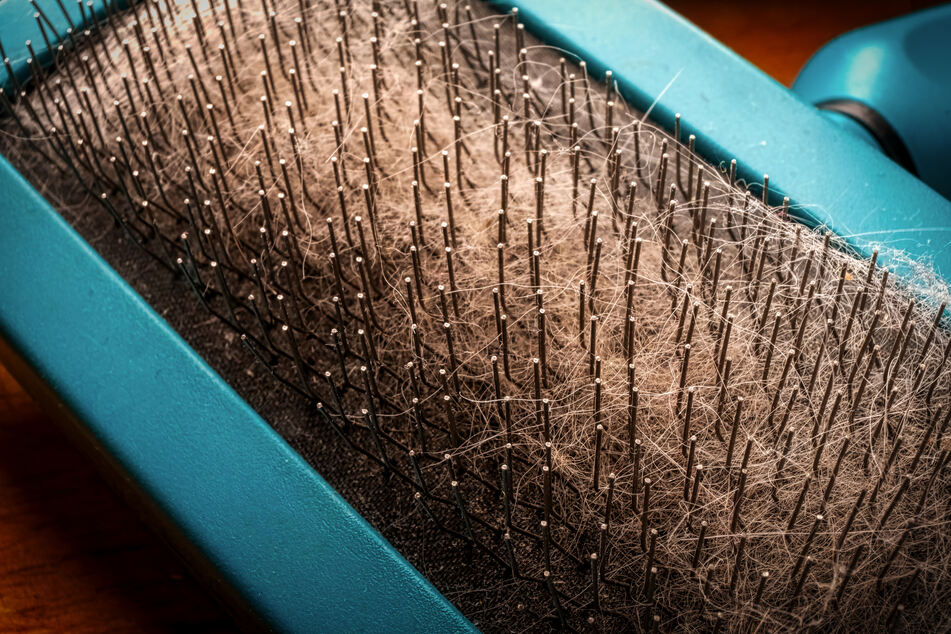
What does dandruff look like on cats?
Dandruff looks almost identical in cats as it does in humans, forming small white or gray flakes of skin that float around in your kitty's coat. It can be recognized especially when you pet your cat, as your hand will likely emerge from its fur coated in small beads of your cat's skin.
In addition, these white flakes will coat many of the pieces of furniture your cat likes to spend time on. The dandruff will often fall out when your cat is cleaning or scratching itself, something it often does in bed or on your sofa. If you find lots of white flakes in such a location, it is likely to be dandruff.
Some alternative symptoms of dandruff also include:
- Itchiness
- Behavioral changes
- Poor grooming habits
- Appetite issues
- Dirty coat
- Skin lesions
- Parasites
- Stiffness in joints
Keep an eye out for dandruff – it is pretty easy to spot and also quite easy to treat, but the first step is taking notice.
Why does my cat have dandruff: Causes
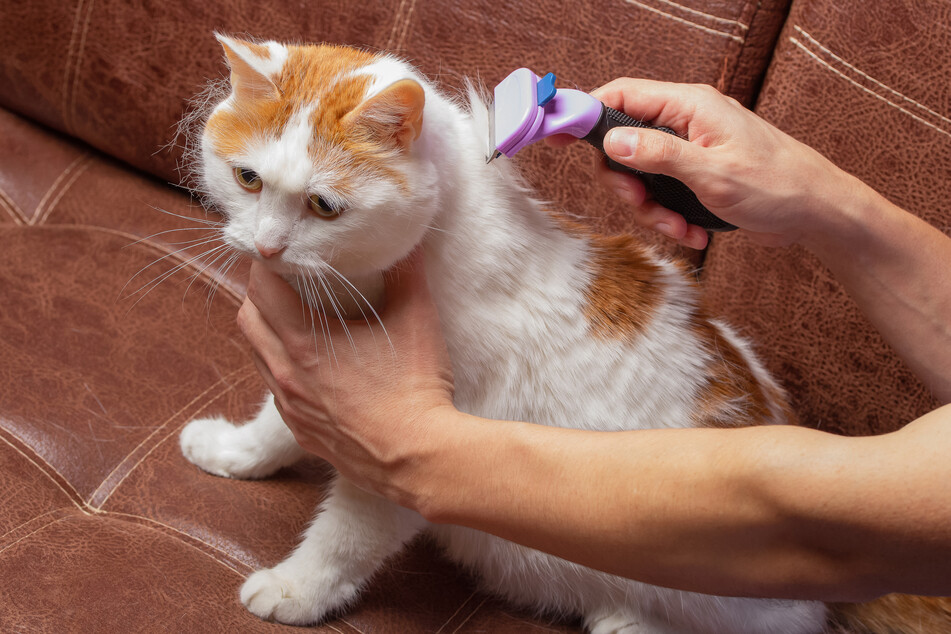
There are a variety of reasons why your cat may have dandruff, and luckily , most are perfectly innocuous and not a sign of something more sinister. But that doesn't mean your cat's dandruff isn't caused by something more serious or perhaps by something that could get dangerous if left alone.
Here are some of the more common reasons why cats get dandruff:
- Obesity makes it more difficult for cats to groom themselves, which can get worse if the cat doesn't lose weight and can lead to other health issues.
- Allergies, possibly to pollen, something it has eaten, dust, or something similar, can cause skin flakes.
- Various parasitic creatures cause dandruff or dandruff-like symptoms.
- Infections, often caused by bacteria or fungus but also from infected wounds and the like, can cause dandruff.
- Improper grooming can also cause dandruff, especially when a cat fails to properly maintain its undercoat. This can also include improper washing by humans.
- More serious reasons for dandruff can include:
- Malnutrition
- Hypo or hyperthyroidism
- Autoimmune problems
- Cancers
- Alternative health issues
The first step when it comes to dealing with any potential health issue in your cat is to define what it is. In more extreme or uncertain cases, this should be done by a veterinarian.

Cat dandruff treatments
If your cat has serious dandruff, then it's time to visit the veterinarian and develop a proper treatment routine. This treatment could be anything from a special shampoo to moisturize your cat's skin, to hormonal treatments or even antibiotics. It is entirely based on the reason behind the affliction and should only ever be approved by a medical professional.
Most treatment routines will include one or more of the following:
- New grooming practices: Your cat may need to be more regularly brushed. On top of this, you may need to bathe your cat and use special shampoo to keep its skin moisturized and healthy.
- Creams and lotions: In some cases certain creams or lotions will be prescribed. Together with new grooming practices, these should help relieve and heal dead skin cells and lesions.
- Dietary changes: If your cat's dandruff is caused by dietary factors, you may need to change its diet to one prescribed by the vet.
- Medication: In more serious cases, your cat may need to take medication.
- Alternative treatments: When your cat's dandruff is caused by a more severe or dangerous medical problem, such as cancer, it will need to be treated for that illness as a priority. As you solve the causal problem, the symptoms will go away.
While cat dandruff might not be a medical emergency, it is still something worth keeping an eye on. In any situation where you are worried about your cat's health, take a step back and away from the computer – you need a vet.
Cover photo: IMAGO/Pond5 Images
